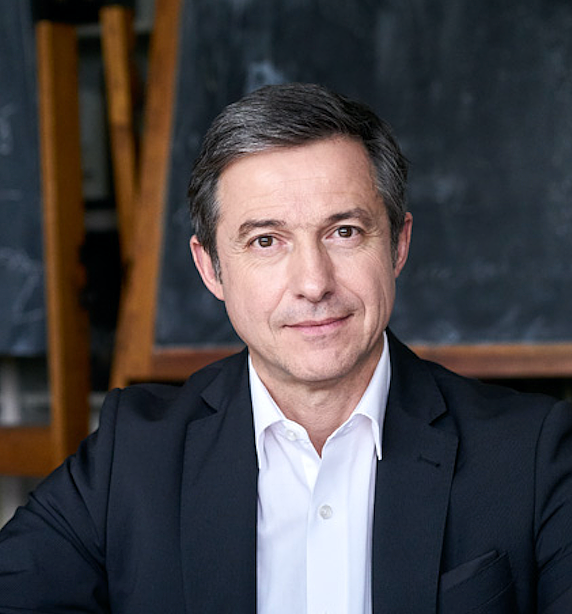Didier Fassin Receives NOMIS Distinguished Scientist Award
Press Contact

Didier Fassin, James D. Wolfensohn Professor in the School of Social Science, has been recognized with the 2018 NOMIS Distinguished Scientist Award, which is presented to exceptional scientists in support of their exploration of unconventional academic paths. The first social scientist to receive the award given by the Zurich-based NOMIS foundation, Fassin will use the award grant, nearly $2 million over five years, to implement a project that will analyze contemporary crises from a global perspective.
“Didier is one of the most penetrating and enlightening thinkers of our time on issues spanning morality and immigration to punishment and our different valuations of life,” said Robbert Dijkgraaf, Director of the Institute for Advanced Study and Leon Levy Professor. “The Institute is delighted that Didier’s work has been recognized with the NOMIS award, which will enable him to further our knowledge of one of the universe’s most complex phenomena––human behavior and its societal meaning and consequences.”
Fassin’s project, “Crisis: A Global Inquiry into the Contemporary Moment,” will examine the ubiquity, in today’s world, of the notion of crisis, which has been applied to most domains of human life—social, economic, political, moral, and cognitive. It will analyze how this pervasive presence of the language of crisis signals something about the present that is both objectively identifiable and subjectively experienced. It will explore, through a multi-sited study conducted on five continents and mobilizing different disciplines, the multiplicity of the forms of, and responses to, crises. The aim of the project is to push further the frontiers of the social sciences, both geographically, through an opening toward a global perspective, and epistemologically, through the encounter with neighboring fields.
Appointed to the Faculty of the School of Social Science in 2009, Fassin is an anthropologist and a sociologist who has conducted fieldwork in Senegal, Ecuador, South Africa, and France. Trained as a physician in internal medicine and public health, he dedicated his early research to medical anthropology, focusing on the AIDS epidemic and global health. He later developed the field of critical moral anthropology, which explores the historical, social, and political signification of moral forms involved in everyday judgment and action as well as in the making of national policies and international relations. He recently conducted an ethnography of the state, through a study of urban policing as well as the justice and prison systems. His current work is on the theory of punishment, the politics of life, and the public presence of the social sciences.
His most recent inquiry is a critical engagement with philosophical approaches to punishment, which was the subject of his Tanner Lectures on Human Values at the University of California, Berkeley, and to life, which was the topic of his Adorno Lectures at the Goethe University of Frankfurt.
Fassin earned his M.D. from Université Pierre et Marie Curie in 1982, completed his Master’s degree at La Sorbonne in 1986, and his Ph.D. at École des Hautes Études en Sciences Sociales in 1988, where he continues to serve as director of studies. He was the founding director of the Interdisciplinary Research Institute in Social Sciences at the National Center for Scientific Research in Paris.
He writes for the French newspapers Le Monde and Libération, and occasionally for the Nation and the London Review of Books. His recent books include The Empire of Trauma: An Inquiry Into the Condition of Victimhood (2009), Humanitarian Reason: A Moral History of the Present (2011), Enforcing Order: An Ethnography of Urban Policing (2013), At the Heart of the State: The Moral World of Institutions (2015), Prison Worlds: An Ethnography of the Carceral Condition (2016), The Will to Punish (2018), and Life: A Critical User’s Manual (2018). Among his awards are the Gold Medal of the Swedish Society for Anthropology and Geography 2015; the William A. Douglass Prize in Europeanist Anthropology 2010; and the Chevalier des Palmes Académiques 2007.


